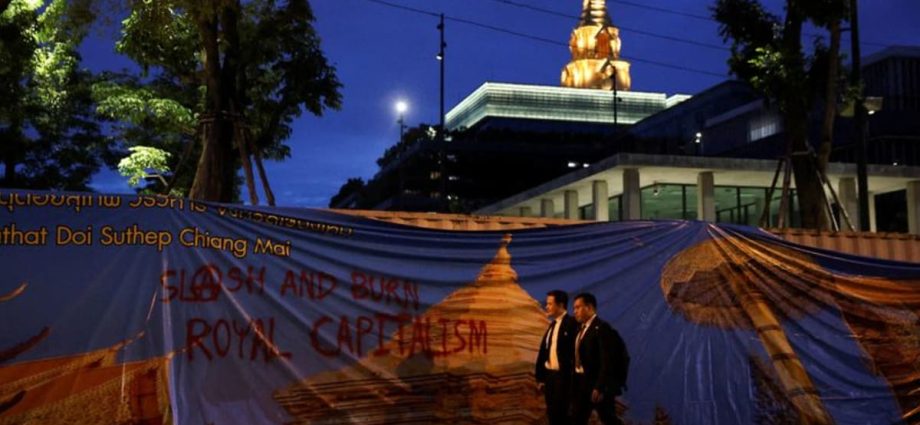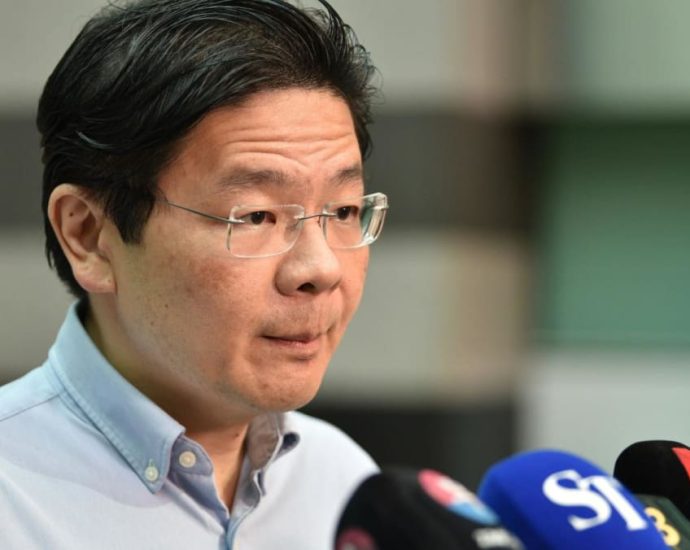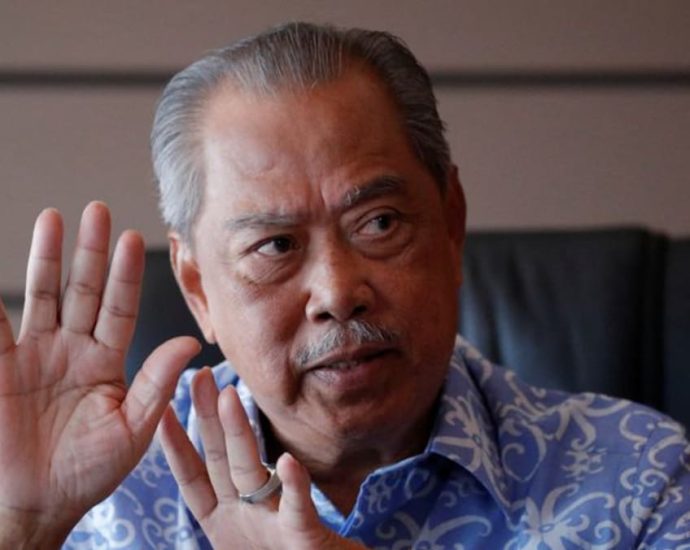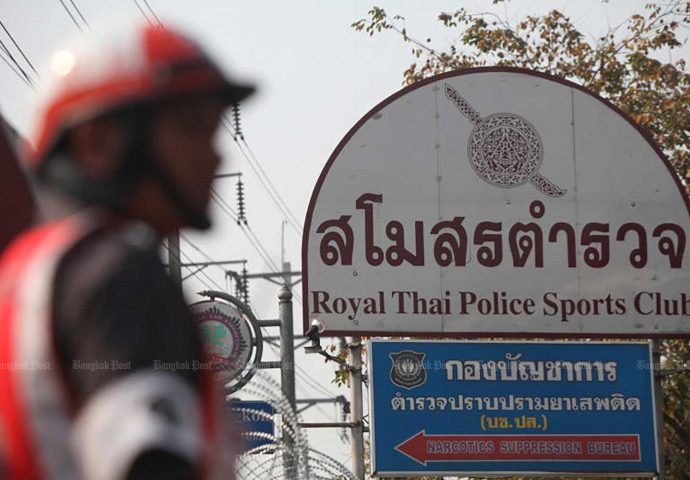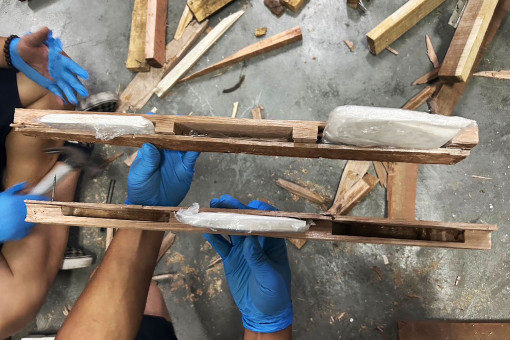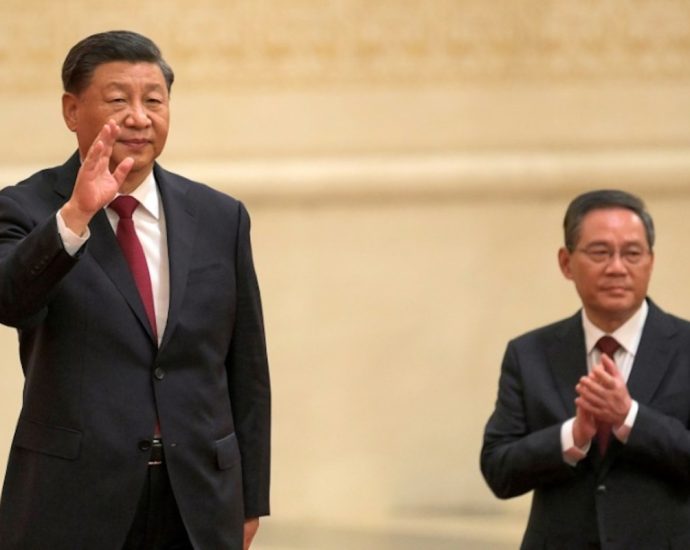Thai parliament to meet again on choosing PM on Aug 4
BANGKOK: Thailand’s parliament is scheduled to sit on Aug 4 to try again to pick a prime minister, it said on Thursday (Jul 27), as a political stalemate drags on following a national election in May. Two previous attempts by the election-winning Move Forward party to have its leader PitaContinue Reading
Cop on trial: Prosecution seeks to impeach former mother-in-law as witness for changing evidence
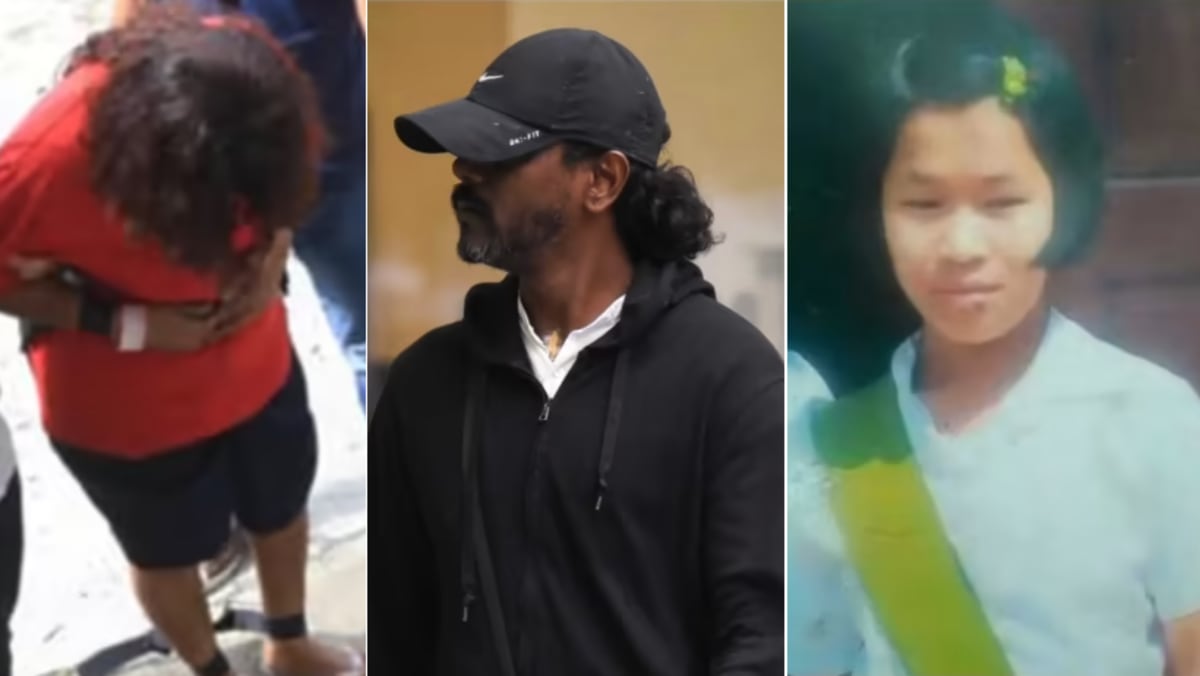
SINGAPORE: The prosecution is seeking to impeach the credit of a witness in the trial of suspended police officer Kevin Chelvam, who is accused of criminal offences related to the death of a maid in his household.
The witness, Chelvam’s former mother-in-law Prema S Naraynasamy, had purportedly given inconsistent testimony in court that was different from what she had previously said in police statements and her own court documents for her offences.
The case stems from the death of 24-year-old Myanmar maid Piang Ngaih Don, following months of abuse and starvation by Chelvam’s then-wife, Gaiyathiri Murugayan, and her mother Prema.
Gaiyathiri and Prema have already been convicted for their roles in the fatal abuse, and are serving 30 and 17 years’ jail.
Prema in particular pleaded guilty to instigating Chelvam to remove a closed-circuit television (CCTV) recorder that contained incriminating footage of the regular assaults on the maid.
Chelvam is the last to be dealt with by the courts. He is on trial for four charges of hurting the maid, abetting Gaiyathiri in starving her, removing evidence in the form of the CCTV recorder and lying to the police.
Even though Prema had pleaded guilty to all her offences and accepted court documents that detailed how she had directed Chelvam to remove the CCTV recorder, Prema gave an account in court that the prosecution said was “a blatant attempt” to change evidence.
THE “NEW” EVIDENCE
Deputy Public Prosecutor Sean Teh said Prema made three new points in court. First, she said she was trying to pull the CCTV recorder out, before Chelvam came and ripped it out.
Second, she claimed that she felt Chelvam unplugged the CCTV recorder because he was afraid that she would get electrocuted.
Third, she said that Chelvam threw the CCTV recorder on the bed and left the house.
Mr Teh said this was “entirely inconsistent with the version of events” Prema had previously given the police. This was a statement she gave on the day the maid was found dead.
Asked to explain the inconsistencies, Prema insisted that her new version was the correct one. She said that she was not “feeling mentally well” and did not know “what to talk” as she was very distressed and felt like she was “going insane”.
She also said she was not concentrating when the police statement was taken and instead “panicked” as she did not know what to do.
When pressed by the prosecution, she said: “I’m just lost. I don’t understand anything. I’m scared.”
When Mr Teh put it to Prema that her new oral testimony about pulling out the CCTV recorder was a blatant attempt to change her evidence using her testimony in court, Prema said: “No, your honour, I promise I never do that. I don’t want to change anything.”
“To my knowledge, I was trying to do it first, not that I’m trying to cover Kevin, no. As far as I’m concerned, I was the one who was trying to remove it, and then Kevin ripped it out,” said Prema.
“Why would you suggest that you were covering for Kevin?” asked Mr Teh.
“You’re asking the same question over and over again, it seems to me like that from the question,” answered Prema.
The prosecution was unable to complete their cross-examination of Prema with a view to impeach her, because of time constraints. The cross-examination will continue on Friday.
If Prema’s credit as a witness is impeached, the court may choose not to rely on her oral testimony in court, preferring instead other statements she had made.
This development came at the tail-end of Prema’s turn on the stand. She had been testifying for two full days as a prosecution witness in Chelvam’s trial.
PROSECUTION GRILLING ITS OWN WITNESS
Earlier on Friday, Mr Teh had asked Prema questions about certain answers she gave defence lawyer Pratap Kishan.
He said Prema gave a “glowing character reference” of Chelvam, saying he was not the sort of person who would cause hurt to the maid.
She also claimed that Chelvam was just trying to wake the maid up by lifting her head, in an incident captured on CCTV footage.
CCTV footage played in court showed Prema hitting the maid repeatedly before giving her a plate of food. As the maid sat on the kitchen floor eating slowly, Gaiyathiri and Prema were seen gesturing at her.
Chelvam, who was washing dishes in the kitchen, was later shown lifting the maid by grabbing her hair. As the maid was lightweight, she was hoisted off the floor while still in cross-legged position.
When Mr Teh tried to show Prema the footage and asked her to explain her evidence, Prema refused to look at it, saying she was “unable to”.
She did the same for all other footage of the maid being abused, refusing to look at the screen and staring at the Tamil interpreter instead, or looking down.
Prema steadfastly maintained that she had never deprived the maid of any food and that the maid was never starved as punishment for mistakes. Instead, she insisted that the maid ate a lot.
Mr Teh showed her extracts of messages from a family group chat, which included herself, Gaiyathiri, Chelvam and her former daughter-in-law Isabella.
In one exchange, Gaiyathiri told the group that she caught the maid stealing spoilt ondeh ondeh from the dustbin at 1am. She said the maid locked herself in the toilet to eat it.
“She loves the dustbin so much. Piece of shit,” said Gaiyathiri in the group chat.
The maid weighed only 24kg including her body bag when she died on Jul 26, 2016.
Turning to Prema, Mr Teh said: “According to you, Don always stole food. And you knew Gaiyathiri tied her to the window grille to prevent her from stealing food. Why do you think Don had to steal food?”
“She eats a lot. Whatever it is, she eats a lot,” said Prema. “She eat as we give and give. Kevin is the only one working. If she is going to eat 1 or 2 kilos a day, how is Kevin going to survive?”
“We give her food as normal but she eats more than that. In that case, Kevin has to be a millionaire,” she exclaimed.
“In prison, I get four pieces of bread. Some of them are really hungry. Four pieces of bread is not enough, but they cannot get more than that. It’s standard. Four slices. So is the rice.”
The prosecutor then cut in, saying: “This trial, Madam Prema, is about Don. It’s not about you.”
“But you’re asking me questions,” retorted Prema.
She had told the court previously that she gave the maid four slices of bread and a big cup of coffee for breakfast.
Mr Teh put it to her that some of her evidence, which was brand new information, was “an afterthought and a complete fabrication”, but Prema disagreed.
The trial continues on Friday and Gaiyathiri is expected to testify at some point.
Recent scandals a ‘setback’ for PAP, government; response matters more when things go wrong: DPM Wong
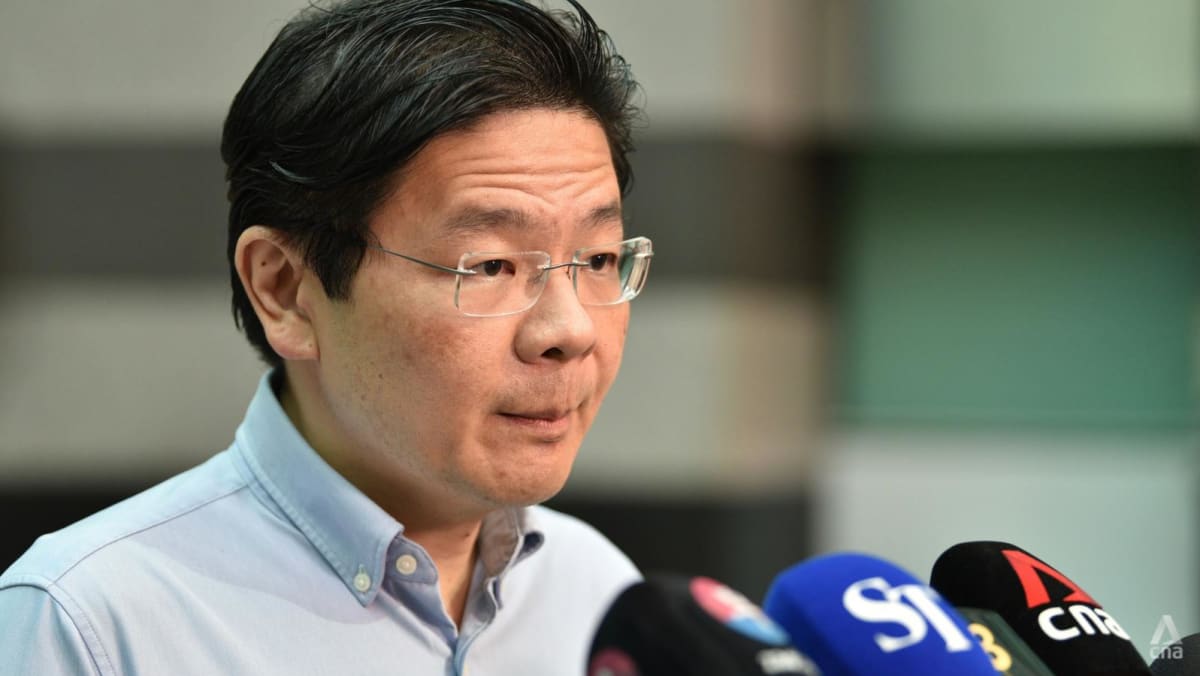
Less than a week after news of the CPIB probe involving Mr Iswaran broke, former Speaker of Parliament Tan Chuan-Jin – who had recently apologised for using “unparliamentary language” – and MP Cheng Li Hui resigned from parliament and the PAP after it was revealed the pair had an affair.
Answering questions on the matter, Mr Lee said he was first alerted to the relationship between Mr Tan and Ms Cheng after the last General Election in 2020, and had spoken to the former about this relationship most recently in February.
Mr Tan admitted his mistake and offered his resignation at the time.
After their conversation in February, Mr Lee had accepted Mr Tan’s resignation, but told him “I needed to make sure the residents of Kembangan-Chai Chee and Marine Parade continued to be taken care of”.
But “very recently”, Mr Lee came across information that “strongly suggested” that Mr Tan and Ms Cheng’s relationship had continued, and he “decided then that Mr Tan had to go forthwith”.
Responding to a question from BBC about whether the government was “actually being upfront” about Mr Iswaran’s arrest and the extramarital affair between Mr Tan and Ms Cheng, Mr Wong said he understood why people have these questions.
On Mr Iswaran’s case, Mr Wong stressed again that the CPIB is an independent agency that has legal powers to conduct thorough investigations. “And it is up to them, their operational prerogative, what information to put up at every stage of the investigation.”
When Mr Lee and Mr Wong spoke on the issue when the news broke, the information was based on the CPIB statement at the time, the latter noted during the BBC interview.
“We did not want to go beyond what CPIB was prepared to say on that day,” said Mr Wong.
“There are operational considerations and it is up to CPIB to make that call. They decided not to say it at the start, but a few days later, they were prepared to reveal the fact that the Minister was arrested. After all, bear in mind, on this case, there was no public information about it.”
When asked about whether he understood the public’s frustration about having the right to know when the arrest was made, Mr Wong said that he did.
“But I hope the public also understands and respects operational considerations, and the autonomy and independence in which CPIB acts,” he continued.
“I believe Singaporeans have full trust in the work of the CPIB; that throughout our history, their track record is clear and evident for all to see. We have zero tolerance for corruption and CPIB acts independently, and are very thorough in their investigation.”
SFA lifts suspension of caterer involved in gastroenteritis outbreak at three MindChamps preschools
This includes disposing of all ready-to-eat food, thawed food and perishable food items, as well as cleaning and sanitising their premises – including equipment and utensils. They also disinfected food preparation surfaces, tables and floors. Additionally, food handlers have re-attended and passed the Food Safety Course Level 1, and foodContinue Reading
Bawaal: Jewish group criticises Holocaust scenes in India film
 Spice PR
Spice PRA Jewish organisation has written to Amazon Prime asking the streaming service to remove Bollywood film Bawaal from its platform for its “insensitive portrayal” of the Holocaust.
The Simon Wiesenthal Center says the film trivialises the “suffering and systematic murder of millions”.
Many in India have also criticised the film for the way it has used the Holocaust in the romantic drama.
But the cast and director have called the criticism unwarranted.
Since the film released on Prime Video last Friday, cinema critics and viewers have criticised some scenes and dialogue that draw a parallel between the protagonists’ love story and the Holocaust.
The film stars Varun Dhawan and Janhvi Kapoor in the lead roles as a recently-married couple, travelling in Europe.
He’s a history teacher and his aim is to make Instagram reels to teach World War II to his students and she is hoping to make one last attempt to save their failing marriage.
The film did not get many positive reviews with critics pointing out that its use of Holocaust imagery and dialogue was in bad taste.
In one scene, Hitler is used as a metaphor to describe human greed, with the character played by Kapoor saying, “We’re all a little like Hitler, aren’t we?”
In another instance, she says “every relationship goes through their Auschwitz” – a reference to Nazi Germany’s largest death camp where almost a million Jews were killed.
In a recreation of the horrors at the camp, the couple dressed in striped clothing are placed inside a gas chamber, where they are surrounded by people who are screaming and suffocating.
On Tuesday, Jewish human rights organisation Simon Wiesenthal Center also joined in the criticism – it said in a statement that Auschwitz should not be used as a metaphor as it’s a “quintessential example of man’s capacity for evil”.
“By having the protagonist in this movie declare that ‘Every relationship goes through their Auschwitz’, Nitesh Tiwari [the director], trivialises and demeans the memory of six million murdered Jews and millions of others who suffered at the hands of Hitler’s genocidal regime,” the statement said.
“If the filmmaker’s goal was to gain PR [publicity] for their movie by reportedly filming a fantasy sequence at the Nazi death camp, he has succeeded,” it added.
The statement also asked Amazon Prime to “stop monetising” the film and immediately remove it from its platform.
Though the makers of the film have not responded to the statement yet, Dhawan had said in an earlier interview during the film’s promotional tour that people took offence at small things in Hindi films but tended to give more leeway to English films.
Director Nitesh Tiwari had said that films should not be viewed with a “magnifying glass” because then “you’ll find problems with every piece of work created”.
BBC News India is now on YouTube. Click here to subscribe and watch our documentaries, explainers and features.

Read more India stories from the BBC:

Related Topics
-
-
2 days ago
-
Malaysia opposition gains support in threat to PM Anwar in regional polls
Malaysia is a multi-racial, multi-faith country with ethnic-Malay Muslims accounting for over 60% of the population. Ethnic Indians and Chinese form sizeable minorities. Bridget Welsh, political analyst at University of Nottingham Malaysia, said there has been an overall shift towards Perikatan among Malay voters, though at least 30 per centContinue Reading
Police to greet Thaksin with warrants
Chief says ‘normal procedures’ will apply to high-profile fugitive, but with added security
PUBLISHED : 27 Jul 2023 at 17:39

Police will greet former prime minister Thaksin Shinawatra with arrest warrants upon his return to Thailand next week and will bring him to court, the national police chief said on Thursday.
As it has been reported that Thaksin would land at Don Mueang airport on Aug 10, Pol Gen Damrongsak Kittiprapas said that a team of Metropolitan Police Bureau and Immigration officers would meet him at the airport and show warrants for his arrest.
If Thaksin arrives on a private jet at Wing 6 in Don Muang district, police will meet him there. In either case, officers will then bring the former prime minister to the Don Muang police station where his arrest will be documented, Pol Gen Damrongsak said.
Afterwards police will bring Thaksin to court.
If the court is closed, he will be brought to a special detention facility in the Royal Thai Police Sports Club in Bang Khen district. Police have already prepared a facility for that purpose if needed, the national police chief said.
Pol Gen Damrongsak said he had assigned his assistant, Pol Lt Gen Prachuap Wongsuk, to oversee safety and traffic management for the arrival of the high-profile fugitive.
“There are normal procedures to receive people wanted under arrest warrants. There will not be any special treatment for anyone,” Pol Gen Damrongsak said.
“Police will do their best to take care of suspects to prevent any unexpected incident, especially any surprise attack,” he added.
Thaksin has spent almost all of the last 17 years outside the country since being overthrown in a coup in Sept 2006. He faces prison terms totalling 10 years for convictions in three cases (see graphic below).
He will be eligible to seek a royal pardon within 24 hours of being jailed, caretaker Deputy Prime Minister Wissanu Krea-ngam said on Thursday.

At least 19 dead after boat capsizes near Philippine capital
MANILA: At least 19 were killed when a passenger boat capsized amid strong winds near the Philippine capital Manila on Thursday (Jul 27), a municipal disaster agency said. It was not immediately clear how many people were on board, but Jose Hernandez, chief of the disaster agency of Binangonan town,Continue Reading
Australia-bound heroin found in crates of sculptures
Three arrested after 32kg of drugs found stuffed into gaps between wooden slats
PUBLISHED : 27 Jul 2023 at 16:59

Police have arrested three drug trafficking suspects after finding 32 kilogrammes of heroin hidden inside gaps in wooden crates containing jade sculptures bound for Australia.
The trio — Theeraphong “Benz” Noothong, 27; Theeraphong “Od” Phrikbenja, 42, and Ja-eua Ja-sue, 47 — were apprehended separately in Nakhon Pathom, Songkhla and Chiang Rai, respectively.
The suspects were wanted on arrest warrants issued by the Criminal Court on charges of attempting to smuggle a Category 1 drug out of the country, and illegal possession of drugs, said Pol Maj Gen Montree Kheskhan, the commander of the Crime Suppression Division (CSD).
CSD police had earlier obtained a tip-off that heroin would be smuggled out of the country in wooden crates containing sculptures.
Their investigation led to the seizure of 831 packs of heroin, weighing about 32 kilogrammes, hidden in 11 crates containing jade sculptures, at a logistics firm on Phutthamonthon Sai 4 Road in Salaya district of Nakhon Pathom.
The drugs, worth about 10 million baht, could fetch up to 100 million baht on the street in Australia, he added.
The CSD investigators then extended the investigation that shed light on the three suspects involved. The drugs had been smuggled from the Mae Sai border district in Chiang Rai province and later stored in Salaya pending shipment to Australia.
During questioning, the suspects denied all charges, but police were not convinced. A record check showed Theeraphong had earlier sentenced to 22 years, 9 months and 15 days on drug charges. He served his time at Songkhla Central Prison before being released.
All of the suspects were handed over to the Narcotics Suppression Bureau for legal action.
Authorities last month seized 32kg of heroin, stuffed inside boxes of pain-relief patches at the Bangkok Port. The drugs were destined for Melbourne, Australia.

Eleven crates containing heroin concealed between wooden slats were seized. (Photo supplied/Wassayos Ngamkham)

A total of 831 packs of heroin, weighing about 32 kilogrammes in total, were seized at a logistics firm on Phutthamonthon Sai 4 Road in Salaya district of Nakhon Pathom. (Photo supplied/Wassayos Ngamkham)
As Fed wraps up tightening, Chinese yuan breathes easier

No government is probably happier that the US Federal Reserve is completing the most aggressive tightening cycle in decades than Xi Jinping’s.
Amid intensifying headwinds zooming China’s way, the idea of less monetary austerity in Washington – and fewer shocks in global capital markets – couldn’t arrive sooner. And odds are that Wednesday’s Fed interest-rate increase, the 11th in 17 months, is the last in the current campaign.
Yet there’s another reason the Fed taking a breather is comforting news for Xi: It relieves pressure on the yuan exchange rate.
As investors ratcheted down their expectations for China hitting 5% growth in recent weeks, the central bank found itself in a tug of war with currency speculators. Local media detailed how China’s major state-owned banks were dumping dollars for yuan in onshore and offshore markets to halt the renminbi’s slide.
This week, the plot thickened as top Community Party leaders meeting in Beijing pledged to keep a floor under the yuan exchange rate as part of vows to invigorate the capital market and buttress confidence.
“It’s interesting that the Politburo mentioned FX stability in the statement, for the first time in recent years,” analysts at HSBC observe in a note to clients. “This means that smoothing yuan depreciation pressure may become more of a policy priority from now on. This is in line with the People’s Bank of China’s further tightening of FX policy recently.”
On the dollar’s recent strength, strategists at RBC Capital Markets note that “the current rise has not been accompanied by as sharp a spike in volatility.” Thanks to nimble policymaking, they add, the yuan’s recent softness hasn’t turned “into an acute crisis situation.”
Beijing limiting the yuan’s downside is good news for four reasons.
One, it reduces default risks in the property market.
It’s not a given that Fed chairman Jerome Powell is done raising rates. As economist Seema Shah at Principal Asset Management puts it: “Data dependence remains the buzzword and, given the confusing signals of waning inflation but a tight labor market, keeping all options on the table seems to be a sensible approach” for the Fed.
Powell, after all, is keeping his options open after Wednesday’s move to raise the Fed’s benchmark rate to roughly 5.3% from 5.1%, the highest level since 2001. As Powell said on Wednesday, “it’s certainly possible that we will raise rates again at the September meeting. And I would also say it’s possible that we would choose to hold steady at that meeting.”
Longtime Fed watcher Diane Swonk at KPMG speaks for many economists when she says Powell’s directive was “about as clear as mud.”
What is clear, though, is that the steady decline in US inflation over the past year – to 3% from 9% – means the Powell Fed will soon take a back seat on US economic policymaking.
As the Fed throttles back on austerity, monetary-policy currents among top economies will remain uniquely divergent for the rest of 2023. It means that the conditions that propelled the dollar to the highest in decades are being reversed just as China is struggling to support the yuan.
As downward pressure on the yuan recedes, so will concerns that “China Evergrande” will be trending on global search engines. The weaker the yuan gets, the greater the risk property-development giants might default on dollar-denominated debt.
Quieter conditions in Chinese credit markets will make it easier for Xi’s reform team to end boom/bust cycles in the real-estate sector.
Two, it reduces the risk of an Asia-wide race to the bottom on exchange rates.
In recent months, many Asian policymakers worried the yen’s 7% drop this year would prod Beijing to follow suit. Nothing, after all, might ensure China reaches this year’s 5% GDP growth target faster than a sharp drop on the yuan.
That would set the stage for a region-wise response. Given still-lingering trauma from the late 1990s, fears that Tokyo’s beggar-thy-neighbor strategy might provoke responses from China to South Korea to Southeast Asia has been a major fear of US Treasury officials.
Back in the ’90s, the Fed’s aggressive rate increases boosted the dollar to levels that forced officials in Bangkok, Jakarta and Seoul to abandon currency pegs. Those competitive devaluations set in motion the 1997-98 Asian financial crisis.
In the decades since, governments strengthened banking systems, increased transparency, created bigger and more vibrant private sectors and amassed sizable foreign-exchange reserves to shield economies from global shocks.
The Covid-19 crisis, though, demonstrated that Asia is still too reliant on exports for growth. Even so, Asian governments over the past year have been more inclined to prop up exchange rates to limit the risks of imported inflation.
As Xi and Premier Li Qiang resist the urge to engineer a weaker yuan, the global financial system has breathed something of a sigh of relief.
Three, a stable yuan could help reduce trade tensions. Surely, it has dawned on US Treasury Secretary Janet Yellen that Beijing is displaying restraint in currency levels as Tokyo does the opposite. That might have been the reason Yellen’s team left China off Washington’s latest “currency manipulator” lists.
Even if Prime Minister Fumio Kishida’s Japan is pushing the weak-yen envelope, Beijing needs to tread carefully. As President Joe Biden runs for re-election, Republican challengers – many itching to investigate China over Covid-19 and suspicious of Asia in general – are sure to accuse Beijing of unfair currency manipulation.
Sanctioning China is, after all, perhaps the only thing on which Biden’s Democrats and Republicans agree. Xi’s team surely realized that while Donald Trump’s trade war and unhinged rhetoric were a drag, Biden’s more targeted and consistent curbs on China Inc since January 2021 have landed some notable blows.
All the more reason to avoid new tensions just as Premier Li’s team pivots toward creating greater economic space for China’s private sector to thrive. Part of the problem is China’s own success in de-emphasizing the public sector over the last 20-plus years.
Sure, Xi’s regulatory clampdown on Big Tech since late 2020 stymied progress on increasing the role of – and innovation in – the private sector. But Beijing is being reminded the hard way that the public sector’s share of urban employment – roughly 20% – no longer packs the punch it once did. It means that, this time, Xi and Li need a more vibrant private sector to boost income and confidence on the way to faster GDP growth.
Here, the policy shifts on display in Beijing this month, coupled with a less draconian Fed, are a plus for private-sector development in Asia’s biggest economy.
“This latest rhetoric from the top man of China’s State Council is likely to boost positive animal spirits in the short term at least,” says analyst Kelvin Wong at Oanda.
“From a medium-term perspective, the external environment also needs to be taken into consideration when global interest rates are likely to stay at a higher level for at least till the second half of 2024 given the latest hawkish monetary policy guidance from major developed countries’ central banks,” including the Fed.
Four, it suggests the shift to more productive growth is real. The latest signals coming out of Beijing are that Team Xi is more focused on long-term economic confidence than short-term-stimulus sugar highs.
The strategy “talks about boosting consumption but only indirectly, via supporting household incomes,” says Julian Evans-Pritchard, head of China economics at Capital Economics. “Those hoping for a new approach to stimulus involving greater transfers to households are likely to be disappointed.”
Economists at Barclays add that “while it signaled more support for the economy, the Politburo meeting generally fell short of offering large-scale stimulus. We view this as a signal that the government would stabilize growth around its target but refrain from an outsized policy response, given the top leaders’ intended shift in focus to quality.”
With a weak-yen obsession these last 25 years, Japan has amply proved that a weaker exchange rate may boost GDP, but does nothing to increase innovation, productivity or overall competitiveness.
If you are the CEO of a large or midsize company, why bother doing heavy lifting on restructuring, recalibrating, reimagining or reanimating innovative spirits when a weak exchange rate is bailing you out?
At the same time, internationalizing the yuan has arguably been Xi’s biggest reform victory these last 10 years.
In 2016, Xi’s government set the stage for yuan’s fast-increasing use in trade and finance when then-PBOC governor Zhou Xiaochuan secured a place for the yuan in the International Monetary Fund’s Special Drawing Rights program. It marked the yuan’s inclusion in the IMF’s club of reserve currencies, joining the dollar, euro, yen and pound.
Xi’s team has steadily increased and broadened the channels for foreign investors to access mainland China’s stock and bond markets. Chinese shares were added to the MSCI index, while government bonds were included in the FTSE Russell benchmark. That, and moves to increase financial transparency, increased global demand for the yuan.
Odds are good, says analyst Ming Ming at Citic Securities, that Xi’s government will continue to improve China’s capital-markets infrastructure to attract more long-term investment and boost direct financing.
Part of the process of building trust in the yuan is letting markets decide its value. The lack of full convertibility remains a big speed bump, of course. But so would the perception that Xi’s team and the PBOC are actively manipulating the yuan lower – provoking the Biden White House or the wider Group of Seven.
Beijing is focused on maintaining progress to date in internationalizing the yuan, and for good reason. That will get a bit earlier as the Fed ends a tightening cycle that Xi’s Communist Party will not miss.

